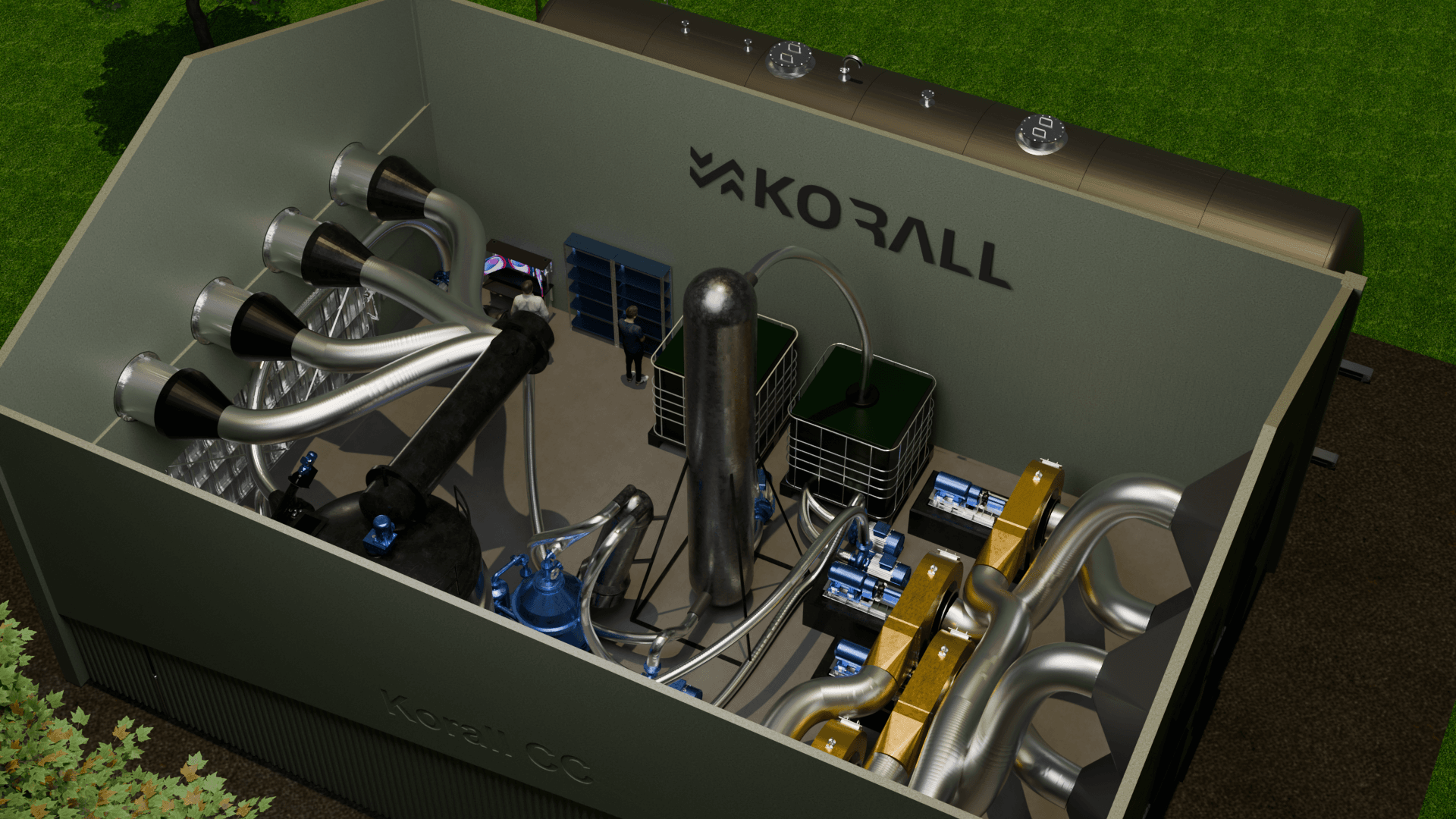Revolutionizing Carbon Removal
I'm Silvia Scozzafava, Founder and CEO of Block CO2, a startup launched in 2020. Our mission is to make natural capital as profitable as financial capital through market mechanisms, beginning with the carbon market. Block CO2 is a certification system and blockchain platform dedicated to creating and trading carbon removals, specifically focusing on biochar-based carbon credits.
Biochar, a stable form of carbon produced through pyrolysis, is recognized for its permanence in carbon removal. Unlike other methods that rely on models and hypotheses, biochar’s effectiveness is straightforward: it locks carbon in a stable form. This simplicity and reliability make biochar an ideal candidate for carbon removal credits, which are distinct from general carbon credits. Additionally, biochar’s versatility and potential co-benefits make it a valuable material for various applications. We observed that existing systems often overlooked the comprehensive value of the biochar value chain. Thus, our approach involves tracking the entire supply chain to ensure sustainability and transparency.
Our certification system mandates that pyrolysis plants use sustainable feedstock, avoiding the planting of crops specifically for biochar production. Instead, we encourage the use of available biomass waste, preventing it from quickly decomposing and releasing carbon back into the atmosphere. Furthermore, we require that pyrolysis plants employ appropriate technology, recovering energy either as electricity or heat, ensuring minimal emissions and higher efficiency.
We monitor the entire lifecycle of biochar to ensure it is not used as fuel, such as in barbecues, which would negate its carbon removal benefits. This tracking also allows us to document and evaluate the additional ecological benefits biochar provides in various applications, such as soil improvement or methane reduction in composting processes. By doing so, we can issue additional carbon credits for avoided emissions, further enhancing the value of the biochar value chain.
The Role of Blockchain
One of the key innovations behind Block CO2 is our use of blockchain technology. We saw blockchain as a wonderful opportunity to maintain transparency in the complex network of relationships involved in biochar production and usage. By integrating blockchain into our auditing process, we reduce verification costs and enhance the credibility of our system.
Traditional verification systems often rely solely on third-party verification, which can sometimes fall short. In 2023, controversies arose around credits verified by third parties but based on faulty methodologies. By tracking the entire supply chain on a blockchain, we provide transparency to the final buyer, allowing them to verify the steps leading to the creation of carbon credits themselves. This approach reduces the burden of verification costs on project developers, who are typically the weakest link in the carbon credit system, and ensures they retain a greater share of the value created. Our blockchain-based system also democratizes access to the voluntary carbon market. By simplifying the verification process and minimizing intermediaries, we enable project developers to reach the carbon markets more quickly and retain more of the value generated. This approach helps ensure that the benefits of carbon finance are more evenly distributed and that the projects with the most environmental value can succeed.
Our system has been well-received, especially by those pioneering pyrolysis in Italy. One of our first clients was a renowned winery in Tuscany, Trescobaldi. This winery has created a closed-loop system within their operations: they source wood from their sustainably managed forests, use a pyrolysis plant to provide heating and cooling to their premises, and apply the produced biochar to their farmland. This comprehensive approach exemplifies the potential of integrating Block CO2’s system within a single business.Another noteworthy example involves a fruit consortium currently undergoing certification. The consortium owns the pyrolysis plant, but the feedstock comes from the prunings of its associated orchards. The produced biochar is used in their nursery for potting new plants, replacing peat in the potting mix. This project engages hundreds of farmers, creates significant local ecological benefits, and recovers energy from the process. These case studies illustrate the flexibility of our system, demonstrating its effectiveness in both single-business and multi-stakeholder environments.
Challenges in Developing Block CO2
Despite the positive feedback and successful applications, developing Block CO2 has not been without challenges. Fundraising has been particularly difficult due to the inherent complexity of our system. While carbon finance is a hot topic, many stakeholders prefer simplified solutions, making it challenging to convey the value of our comprehensive approach. However, we remain committed to maintaining this complexity to address the climate issue effectively.
Additionally, entering the voluntary carbon market has posed its own set of challenges. As a platform, we serve two sides: the project developers and the buyers. While we have made significant progress in onboarding pyrolysis plants and farms, we are now focusing on engaging the buyer side more systematically. The market is maturing, with increasing awareness about the quality of carbon credits and a deeper understanding of carbon removal methodologies. This shift in market perception aligns with our mission to provide high-quality, transparent carbon credits.
We are optimistic about overcoming these challenges as the market continues to evolve. By sticking to our principles of transparency, sustainability, and systemic complexity, we aim to position Block CO2 as a leader in the carbon removal sector. Our goal is to continue enhancing our platform, ensuring it serves the needs of both project developers and buyers, while maximizing the environmental and economic benefits of carbon removal.
As we move forward, we will continue to leverage blockchain technology to maintain the highest standards of verification and transparency. By doing so, we hope to democratize access to carbon markets further and support the global transition to a more sustainable and equitable future.

